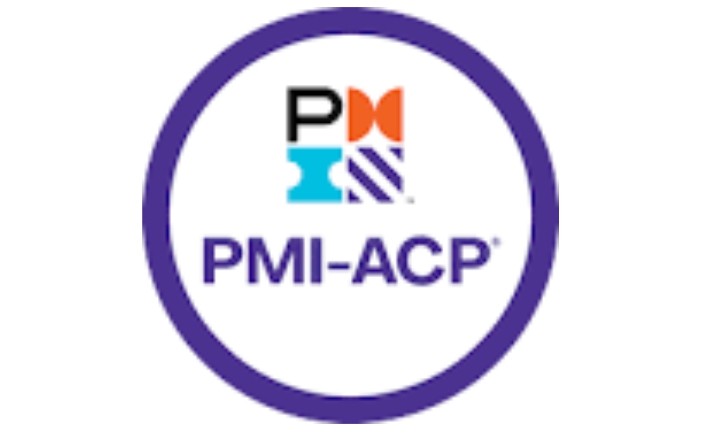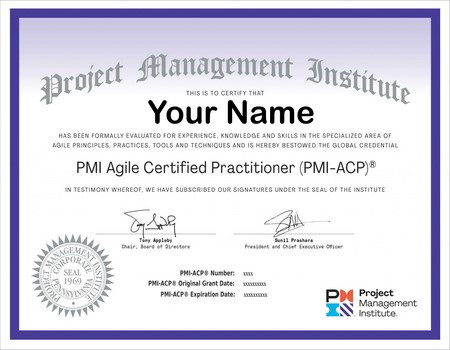Agile Certified Practitioner
Certification PMI-ACP is a fastest catching up Agile Certification advocated by
PMI. This is said to be a one-in-all Agile Certification that encompasses the
overall umbrella of Agile practices knowledge and understanding for all the
roles in Project Management. As agile is also a set of methodologies,
frameworks and practices, the PMI-ACP® certification tests you on the multiple
aspects and does not restrict to any particular methodology (like Scrum,
Kanban, XP, etc.) or role (like Product Owner, Agile Coach, Scrum Master, etc.)
Once you are a certified PMI-ACP®, it means that you are in a different league
of agile practitioners.



